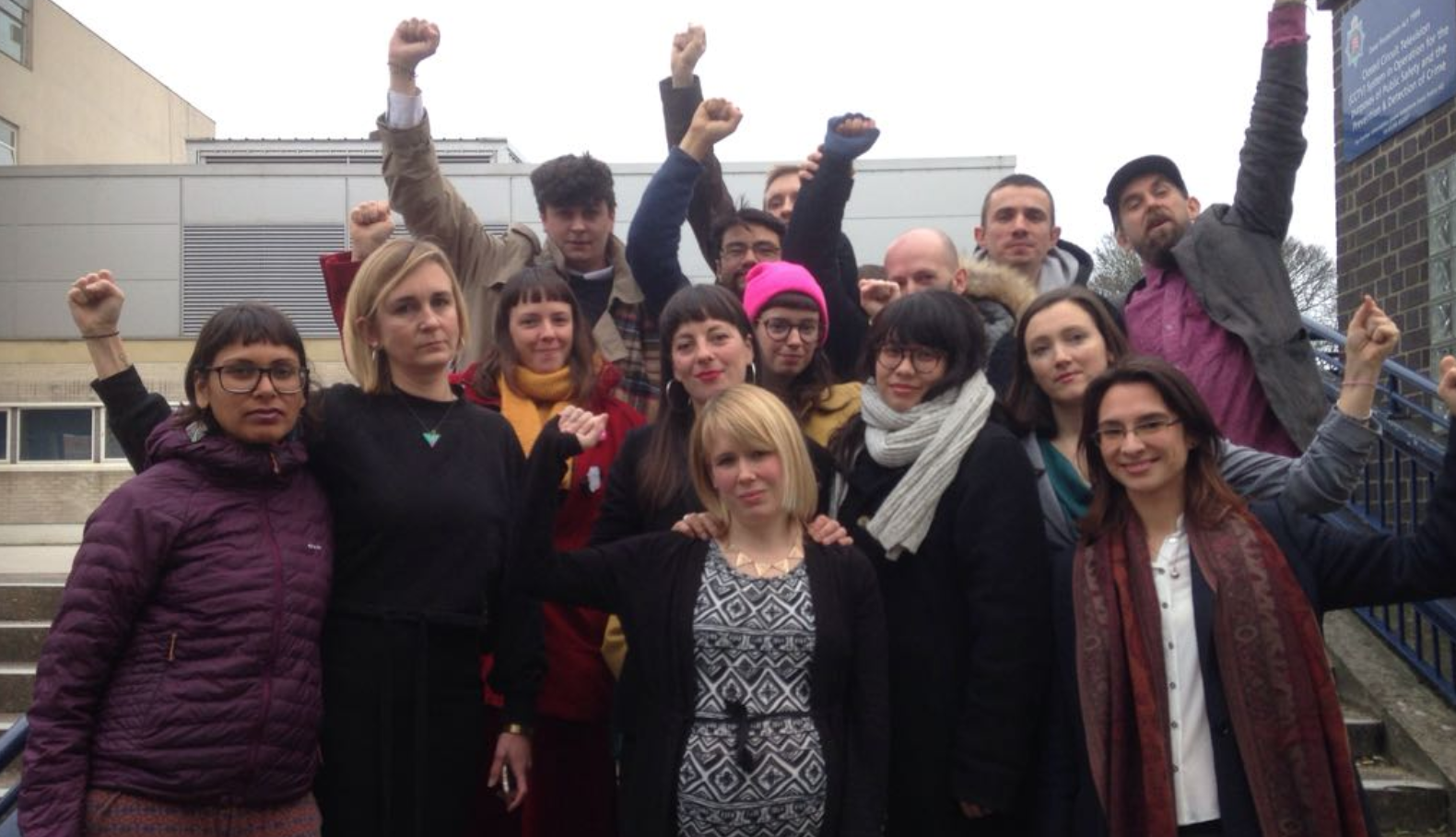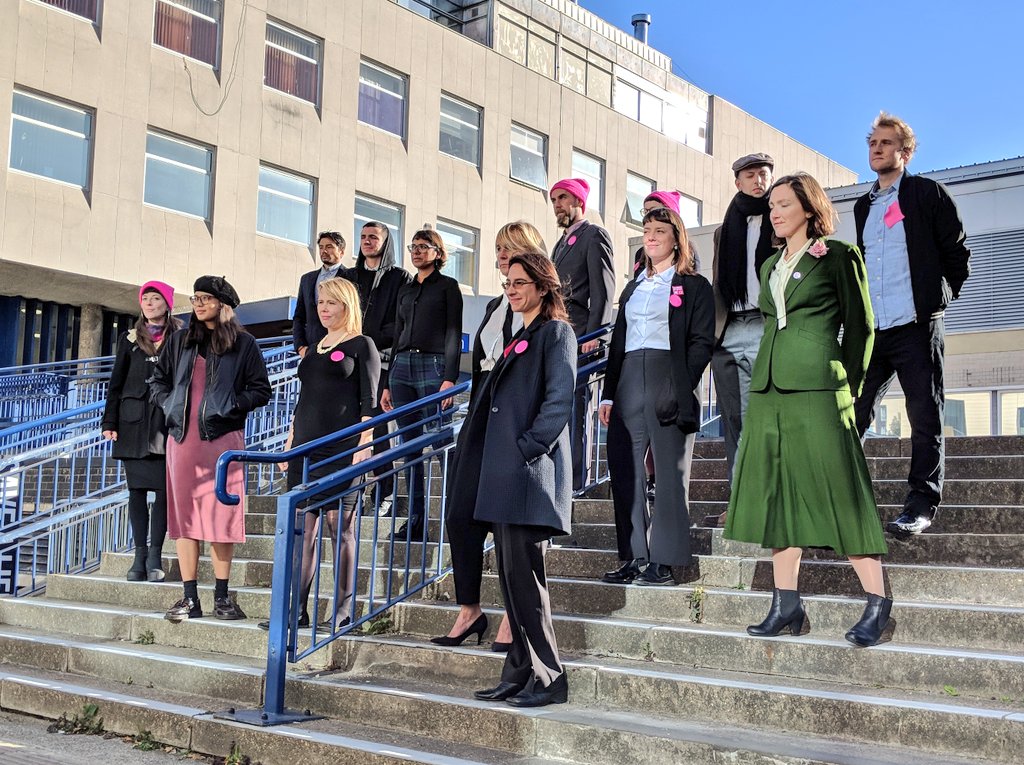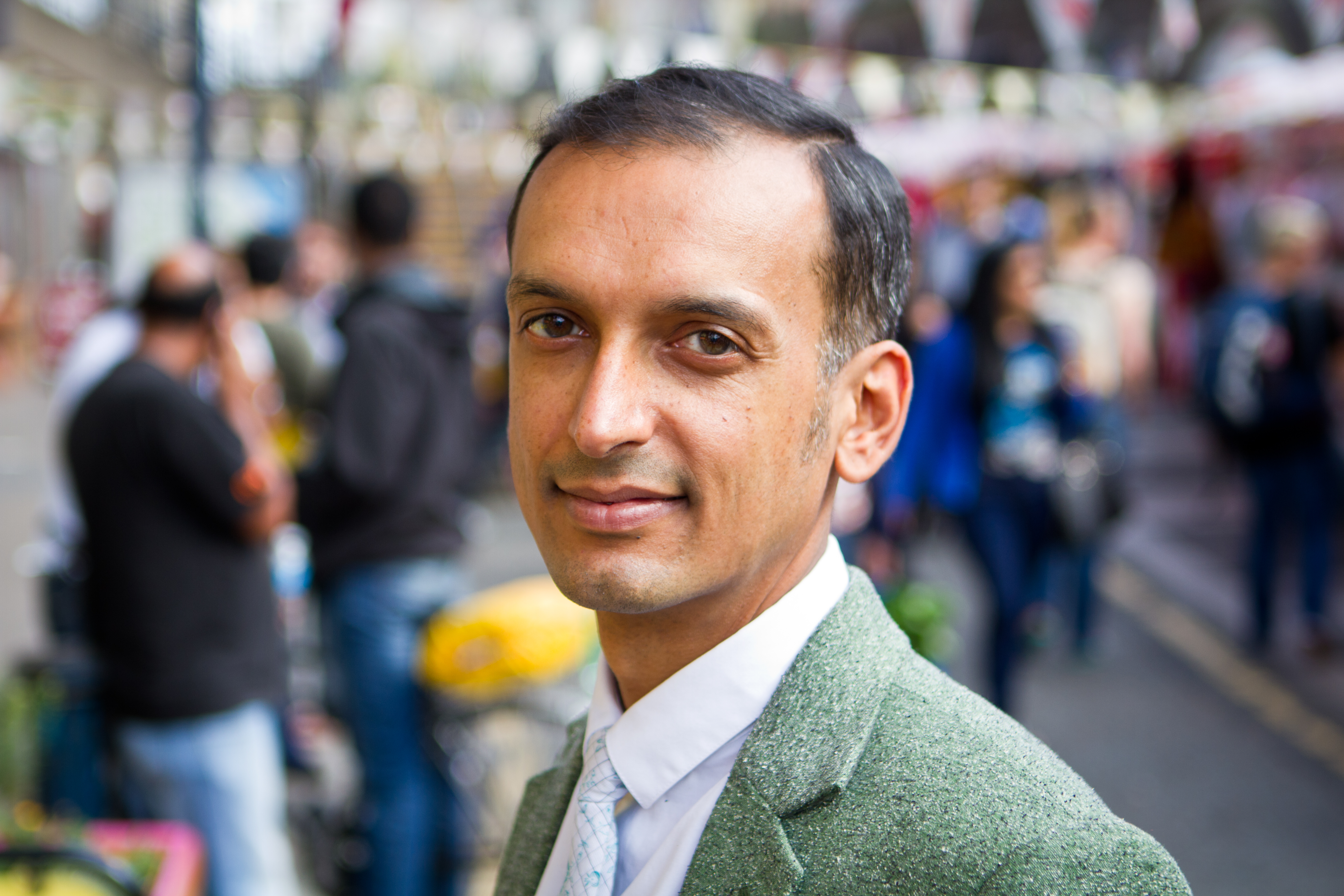Fifteen protesters who were convicted under counter-terrorism legislation after stopping a deportation flight leaving Stansted Airport have launched an appeal against their conviction.
On 10 December 2018, following a nine-week trial at Chelmsford Crown Court, the activists were convicted by a jury of endangering the safety of an aerodrome under the 1990 Aviation and Maritime Security Act – a law passed in response to the 1988 Lockerbie bombing.
Lawyers acting for all 15 lodged the appeal at Court of Appeal in London on 7 January.
Raj Chada, Partner at Hodge Jones & Allen, who represents the activists, said: “The conviction of the Stansted 15 was a travesty of justice that needs correcting in the appeal courts. It is inexplicable how these protestors were charged with this legislation, and even more so that they were found guilty.
“It is our strongly held belief that charging them with this offence was an abuse of power by the Attorney General and the CPS. It is only right and fitting that this wrongful conviction is overturned.”
Helen Brewer, one of the 15 activists who were convicted, said: “We are appealing our convictions because justice has not been done. Justice will only be done when we are acquitted of a crime that is completely disproportionate to an act of peaceful protest and when the Home Office is held to account for the danger it puts people in every single day – people who have sought asylum in this country fleeing harm and persecution in the very places the government deports them to.
“Those are the real crimes – the use of brutal, inhumane and barely legal deportation flights, and the unprecedented use of terror law against peaceful protesters who acted to prevent harm.”
The 15, aged between 27 and 44, face up to life imprisonment when they are sentenced in week commencing February 4, 2019.
What Did the Stansted 15 Do?
Last night 14 activists blockaded a mass deportation flight and stopped it from forcibly deporting dozens of people to Nigeria and Ghana. Join them in calling on Theresa May to #StopCharterFlights now: https://actionsprout.io/1631AC
Posted by End Deportations on Wednesday, 29 March 2017
On the night of 28 March 2017, the 15 activists cut through the perimeter fence of Stansted Airport in Essex, and four of them locked themselves to a plane chartered by the Home Office to remove 60 people held in detention centres from the UK to Nigeria, Ghana and Sierra Leone.
The group argue their actions were justified as they were preventing people from being removed to countries they had fled and were at risk of serious harm and possible death. They believe they were protecting the human rights of the 60 people on the charter flight.
'We are guilty of nothing more than intervening to prevent harm.' A message from the #Stansted15 from the steps of court.
Join us tonight to protest their conviction: https://t.co/k3Y9nTJ3r2 pic.twitter.com/ihAze34hAx
— End Deportations (@EDeportations) December 11, 2018
Following their conviction in December, the activists who are part of group End Deportations, a collective campaign to end mass deportations by charter flight, issued a statement: “We are guilty of nothing more than intervening to prevent harm. The real crime is the government’s cowardly, inhumane and barely legal deportation flights and the unprecedented use of terror law to crack down on peaceful protest.
Stansted 15 Conviction ‘Devastating’ For Right to Protest
Spirits are high at the mass deportation flight blockade at Stansted airport. Activists saw the crew leaving and the access steps being removed #StopCharterFlights
Posted by End Deportations on Tuesday, 28 March 2017
Following the conviction of the Stansted 15 under terrorism legislation, which means they could face up to lifetime imprisonment when they are sentenced in February, Caroline Lucas MP described their convictions as ‘absolutely shocking’.
She said the conviction of non-violent protesters was, ‘a devastating blow to our fundamental right to protest.’
Katie Allen, director of Amnesty UK, described the conviction as a ‘crushing blow for human rights’ and believed the terrorism-related charge is heavy-handed.
She said: “It’s deeply disturbing that peaceful protesters who caused disruption but at no time caused harm to anyone, should now be facing a possible lengthy prison sentence. This whole case will send a shiver down the spine of anyone who cares about the right to protest in our country.
“The UK should not be bringing such severe charges against those who seek to peacefully stand up for human rights.”
The right to protest falls under Article 11 of the Human Rights Convention, the right to free association, which protects the right of a group to take collective action and the right to freedom of assembly. It also protects the individual right or ability of people to come together and collectively express, promote, pursue, and defend their collective or shared ideas
However, Article 11 is a ‘qualified right’, which means it can lawfully be interfered with in the interest of public safety, the prevention of disorder or crime, or the protection of other people’s rights and freedoms.

Image via Twitter
The Human Rights Act 1998 marked the first time in English law that the right to protest was explicitly protected.
The right to protest also involves Article 10 of the Human Rights Convention, which protects the right to free expression and means we can have our own opinions and share them with others, including publicly and as part of a group.
It states: “Everyone has the right to freedom of expression. This right shall include freedom to hold opinions, and to receive and impart information without interference by public authority and regardless of frontier.”
Largely in the UK peaceful protesters have not been given custodial sentences, and civil liberties groups, campaigners and MPs believe that the use of terror legislation to prosecute the Stansted is an attack on the right to protest and our fundamental human rights.
Jonathan Bartley, co-leader of the Green Party, writing exclusively for RightsInfo described the Stansted 15 as ‘heroes’







